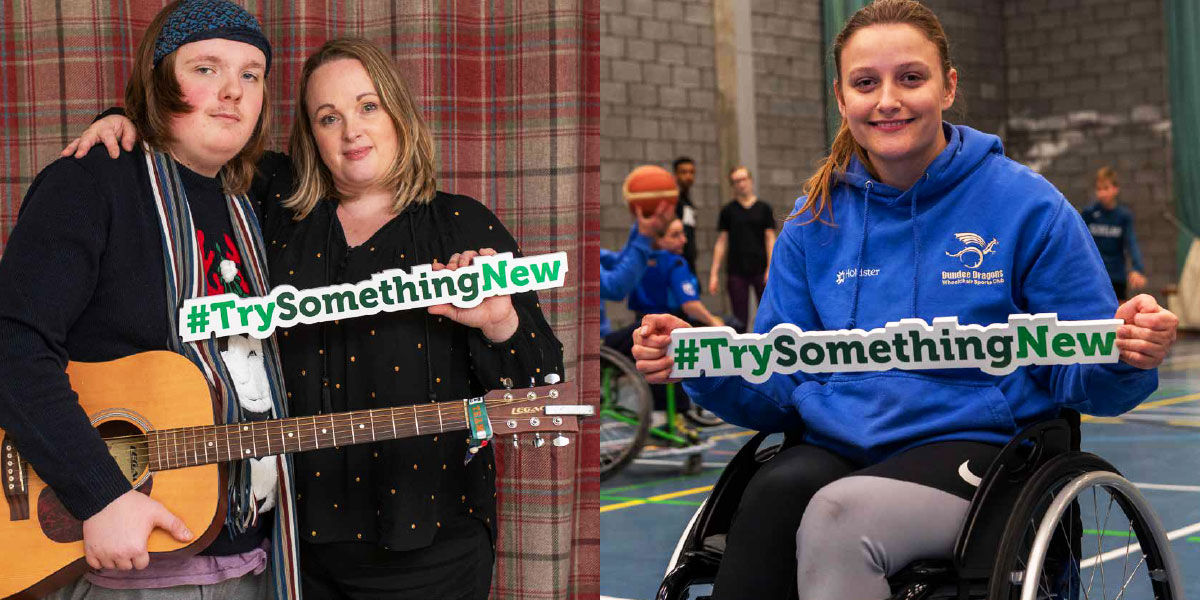
Growing up for any young person comes with its challenges, with new responsibilities and changes leaving many feeling vulnerable, isolated and lost. The transition from childhood to adulthood can be particularly challenging for young disabled people.
At a time when new opportunities should be presenting themselves, we have found that a lot of doors can actually close for those with physical or mental impairments or long-term health conditions. Reduced access to support services, fewer opportunities to socialise with peers and new-found financial strains are just some of the factors facing young disabled people in Scotland today as they embark upon adulthood.
As a result, what should be an exciting time often becomes quite an overwhelming one. Without the right support, many young disabled people – who could otherwise go on to live fulfilling, independent lives – become socially isolated and withdrawn. This can have a detrimental impact on their physical and mental health. The barriers that prevent young disabled people from participating within their communities mean that they fail to realise their potential and are forced to continue to rely on their families for support.
At ILF Scotland, we worked with disabled people, disabled people’s organisations (DPOs) and other external stakeholders who told us the ages of 16-21 are a critical period for young disabled people who are transitioning from school to the adult world.
It was clear that this age group would greatly benefit from being supported with funding to become independent and more integrated within a community. This is why we set up the Transition Fund to provide young people living with disabilities with the funding needed to engage in new activities that support their confidence and social interactions, with an overall goal of enhancing their independence.
Since the fund launched, nearly 700 young people have applied for funding to help them participate in activities, such as karate classes to driving lessons, specialised wheelchairs, DJ equipment and guitar lessons.It is always incredible to hear the stories of many of the young people that the Transition Fund has supported.
Gemma, a young wheelchair rugby player with cerebral palsy who’s on the GB development squad team received funding for a lightweight wheelchair, which is much easier to transport, as well as driving lessons to attend away-tournaments.
Dylan, aged 16, has autism, and really wanted to engage in his community. A talented guitarist, Dylan has secured enough funding from the Transition Fund to access a communal recording studio at a community college where he gets guitar lessons. These are just two of the many young people that the Transition Fund has supported in their pursuit of independence and social inclusion. Although two very different goals, they have one thing in common – avenues that previously would not have been available to them are now open, and their confidence, engagement in the community, and above all their independence have all been enhanced as a result.
Embarking upon adulthood doesn’t need to be a time of crisis for young disabled people – instead, with the right support, it can be a period of exploration and discovery. We want to support more young disabled people to live fulfilled lives, and start laying down the foundations to achieve their future goals.
The Transition Fund has been set up to help young disabled people achieve their dreams, live independently and feel more integrated in their communities. We encourage all those who are eligible to apply to the fund and #TrySomethingNew.
The Transition Fund is easy to apply for and has had a huge impact on the lives of many young people so far. Find out what you can apply for, then download the form today and tell us about your goals and how the Transition Fund can help you.
You can also apply online by contacting enquiries@ILF.scot with the subject heading ‘Online application request’.
